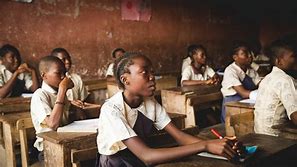As the world continues to grapple with the COVID-19 pandemic, plans and strategies should be put in place to ensure that children in South African schools can continue with their education. The majority of children who live in under-resourced communities should be taken to school.
In most of the rural South African schools, kids have been attending schools without pay. Most of the students are struggling in education systems that are not designed for them.
In the effort to tackle the education inequalities that characterize South African schools, it is paramount to understand the type of learners.
Provincial directives have failed to recognize the inadequate learning material coupled with the conditions of living of the majority of the impoverished South African families. At the expense of the learning opportunities of these kids, the focus is on the curriculum recovery and coverage.
With the concerted efforts to enhance learning in schools, the South African government and the civil society can take the following steps in ensuring better learning opportunities for the kids.
Measures to be undertaken by South African schools amid COVID-19
- Children learning should be prioritized instead of curriculum assessment. By doing that, there is a need for recognition of strategies used in distance learning which differ substantially from physical learning environments.
- The focus should be trained on ensuring the children learn different skills such as drawing and creative arts, for which they don’t have enough skills in schools
- Education content could be provided in native South African languages in order to bring parents on board, an example that has been embodied by Ngugi wa Thiongo.
- Children could share their creations with their instructors on platforms such as WhatsApp.
- The government should distribute low-cost books and the delivery7 to the kids during this pandemic should be rendered essential.
- The government should coordinate the distribution of stationery to kids.
Highly prescriptive curriculums cannot be delivered remotely
The measures stipulated above will ensure that families are confident in providing learning environments for their kids at home.
However, curriculums like CAPS that are highly prescriptive can not be delivered remotely, and the introduction of new content cannot be taught once the South African schools reopen again. Moreover, schools cannot provide formal assessments to children while they are still at home.
Generally, at this moment in time, the learning activities for children should lay much emphasis on decision-making processes. There should exist commitments to progressive equality and not escalating divisions. The government and stakeholders should equalize access both for privileged kids and the majority of children from low-income families.
Featured Image credits: Bing
.







